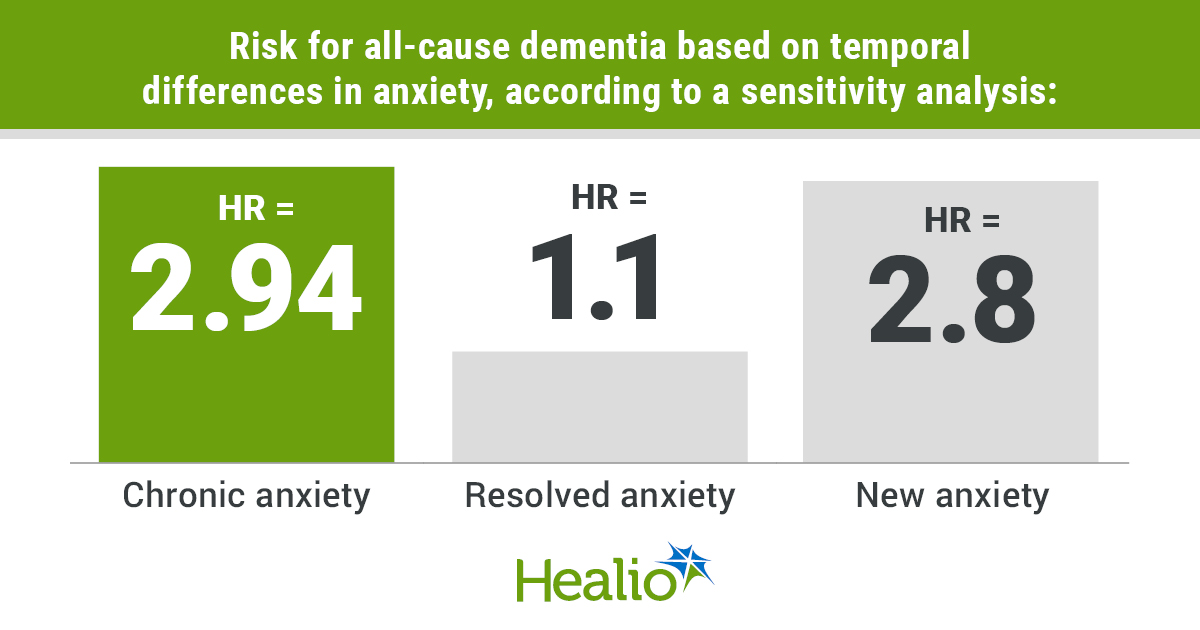Time: 2024-08-11
Anxiety is a growing concern in today 's society , with research showing a strong connection between chronic and new - onset anxiety and an increased risk of developing dementia later in life . A recent study conducted by researchers from The University of Newcastle , Australia , found that out of 2132 participants aged 55 - 85 years , those with chronic anxiety were at a 2.8 - fold increased risk for dementia , while those with new - onset anxiety had a 3.2 - fold increased risk . The study , published in the Journal of the American Geriatrics Society , highlighted the importance of addressing anxiety as a potential risk factor for dementia.
Participants in the study were assessed over three waves , with demographic and health - related data collected at wave 1 . Anxiety was measured using the Kessler Psychological Distress Scale ( K10 ) at baseline and first follow - up , with anxiety classified as chronic , resolved , or new based on its presence at each wave . The primary outcome , incident all - cause dementia , was identified using specific codes during the follow - up period , which lasted up to 13 years after baseline.

The results of the study revealed that individuals younger than 70 years with chronic anxiety had a significantly higher risk for dementia , with a 4.6 - fold increased risk compared to those without anxiety . Furthermore , participants with new - onset anxiety in the same age group had a 7.2 times higher risk for dementia . The study emphasized the need to target anxiety as a risk factor in dementia prevention and highlighted the potential benefits of treating anxiety to reduce this risk.
While the study provided valuable insights into the relationship between anxiety and dementia , there were certain limitations , such as the use of the K10 assessment , which only captured symptoms over a 4 - week period . Additionally , a significant number of participants were lost to follow - up , potentially impacting the study 's findings . Moving forward , further research is needed to explore the effects of different types and lengths of anxiety treatments on dementia risk and to better understand the underlying mechanisms linking anxiety to dementia.
In conclusion , the study sheds light on the importance of addressing anxiety as a potential risk factor for dementia and underscores the need for early intervention and management of anxiety to reduce the risk of dementia in later life . By raising awareness of the link between anxiety and dementia , healthcare professionals can play a crucial role in supporting patients in maintaining their cognitive health and well - being.